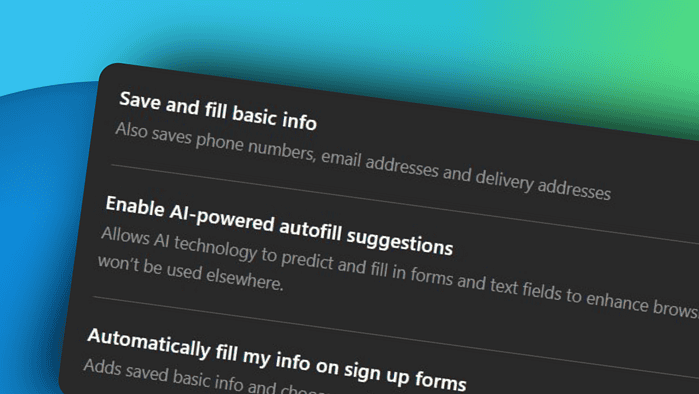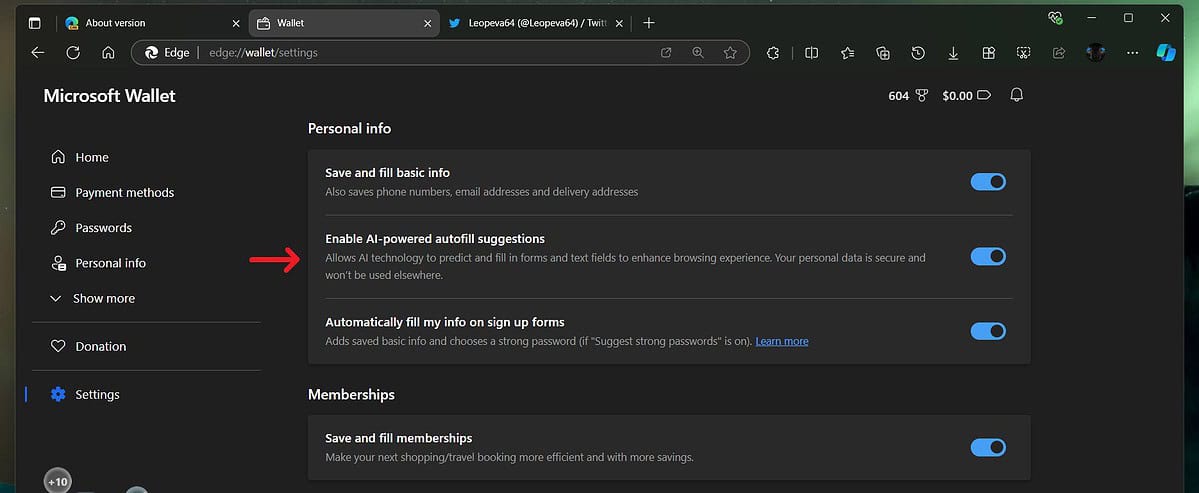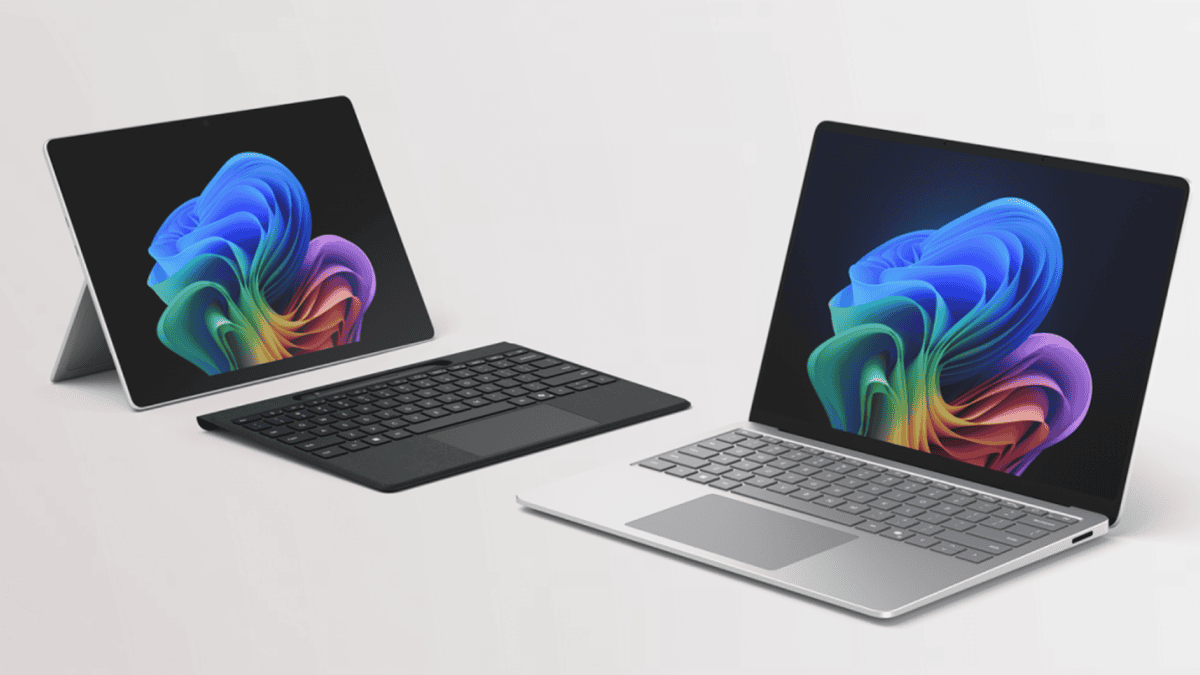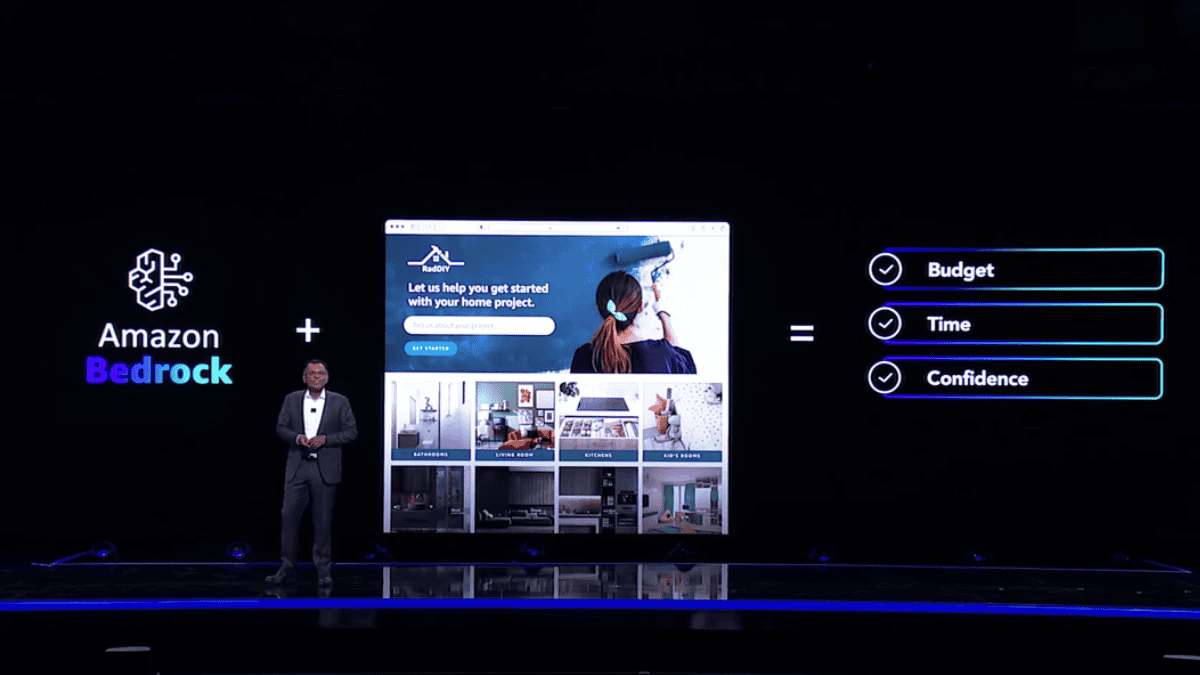AI is also coming to Microsoft Edge Wallet, letting you use AI to autofill suggestion
2 min. read
Published on
Read our disclosure page to find out how can you help MSPoweruser sustain the editorial team Read more
Key notes
- Microsoft Edge Wallet is soon getting an AI feature
- It lets you “autofill suggestions,” according to a new discovery on Edge Canary.
- ” Your personal data is secure,” Microsoft promises.

The AI boom is real, as many browsers have started adopting AI features here and there, be that Edge, Chrome, Opera, or even Firefox. Microsoft Edge Wallet, a native feature within the popular browser that lets you securely store payment methods & passwords, is getting yet another AI feature.
Folks in Edge’s insider community have recently spotted a new toggle in the Settings page from Edge Canary, its experimental channel. Living inside the Wallet page, the new toggle lets you enable “AI-powered autofill suggestions.” Here’s what it looks like, courtesy of trusted eagle-eyed insider @Leopeva64 on X:

“Allows AI technology to predict and fill in forms and text fields to enhance browsing experience. Your personal data is secure and won’t be used elsewhere,” the toggle’s description reads.
We cannot independently verify this for now, as its rollout is probably being controlled in a feature rollout (CFR) scheme. However, this feature’s introduction seemed likely since a somewhat similar update was implemented in Chrome’s browsing history section, which is Edge’s main competitor.
Our friends over at Windows Latest also spotted that Edge might integrate Copilot into its Crypto Wallet. In a recent Edge Canary build, a new “msCryptoWalletCopilot” feature was added, though it is not yet functional.
A little while ago, we reported that Chrome will soon use AI in its browsing history section, letting you look for anything more than just the website’s titles or URLs. Google says that it may still use human reviewers to train the model, although page contents are still encrypted locally.









User forum
0 messages